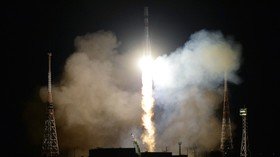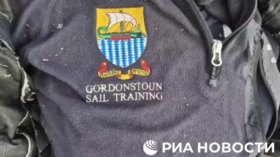Trip to ISS to be faster than flight from Moscow to Brussels, Russian space chief promises

With Russia testing a faster rendezvous to supply the International Space Station, soon this trip will be as short as three hours, according to Dmitry Rogozin, the head of Roscosmos.
In July, the Progress freighter used a two-orbit rendezvous to reach the ISS for the first time in history. The trip lasted about 3 hours 40 minutes. Rogozin promised even shorter travel times for crew members and possible space tourists once the scheme is expanded to the Soyuz spacecraft.
“In six months we will be delivering crew members and tourists to the ISS faster than a flight from Moscow to Brussels,” he tweeted.
For decades both Russian and US launches traveled for two days before carefully docking with the space station. A four-orbit, six-hour scheme was introduced in 2012, making the trip much more comfortable.
Fast rendezvous maneuvers were historically used when the USSR and the US were developing their space docking technologies, but those missions required the target ship to be placed in a special orbit.
The world record for time between launch and docking is held by the Soviet 1968 unmanned Soyuz mission targeting the Kosmos-213 station, which took just 47 minutes. The fastest manned rendezvous was done by Georgy Beregovoy in about an hour, but the docking procedure was aborted.
But long-term operation of space station required an orbit less suited for a fast rendezvous, which made trips to Skylab, Mir and now the ISS take more orbits and time.
Russia’s next two-orbit Progress supply mission is scheduled for March.
Think your friends would be interested? Share this story!














